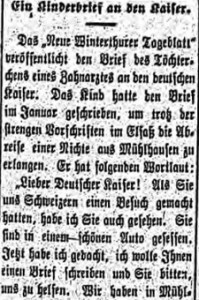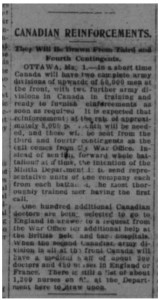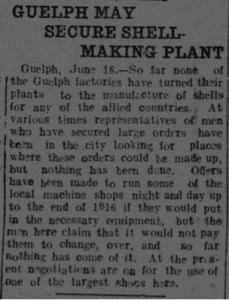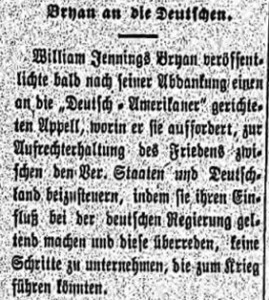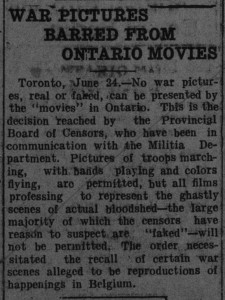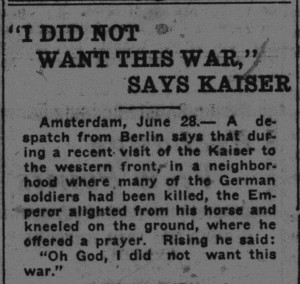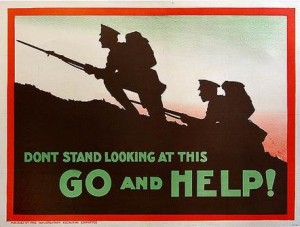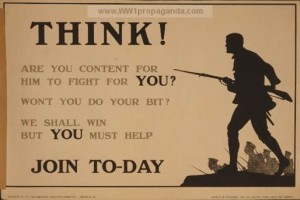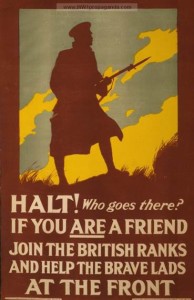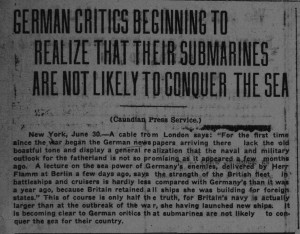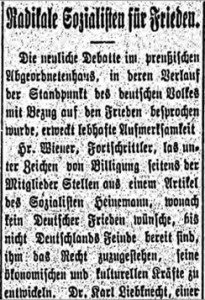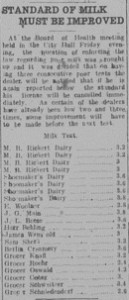A German newspaper published a letter from the daughter of a dentist to the emperor. It was written in January 1915 to achieve a specific aim. The little girl lived in Switzerland with her family and she had seen the emperor during a state visit. She asked him for help because her little cousin, who was on holidays in Mühlhausen (Alsace), was not allowed to travel back because of the war and strict rules. The family wanted to keep her with them in Switzerland until the war ended. The girl thought the emperor could arrange this as everybody had to obey him. Another cousin of the two girls would fight for the emperor at the Russian front. The girl also offered to do him a favor and wished him a belated happy birthday, health and imminent peace. After that letter was made public the cousin was allowed to return to Switzerland.
(„Ein Kinderbrief an den Kaiser“, Berliner Journal, 9 June 1915)
